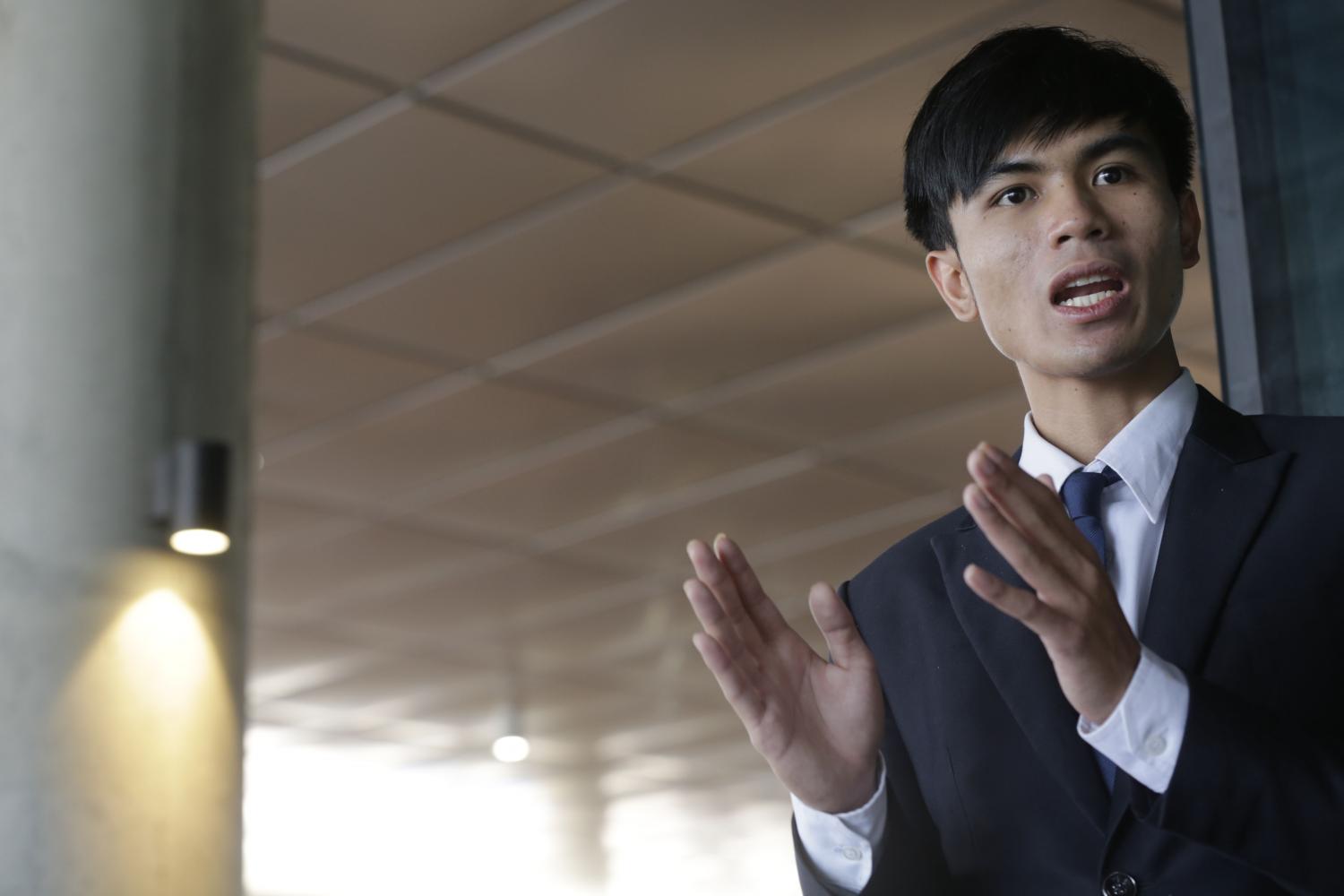
The latest series of protests did not only shake up political stability and widened the gap between the younger and older generations, but they have also driven a wedge between teachers and students.
As student demonstrators heighten their campaign against the establishment to oust the government and push for sweeping political reforms, some teachers and schools have countered the students by forbidding them from using campuses to advance their political cause.
According to the Uncommon International Group (UNG), which encourages students to participate in social change, and the Association of Students in Thailand, there have been over 100 cases of students being intimidated by schools and teachers after coming out to protest against the government.
UNG, which has been active in engaging youth in their social development campaign, last week submitted a petition to Education Minister Nataphol Teepsuwan, asking the ministry to protect the rights and safety of student demonstrators.
UNG also asked the ministry to punish teachers and other education personnel who hit students for expressing their political stance.
Mr Nataphol had promised earlier that students have the right to express their opinions. In a special interview with the Bangkok Post, UNG head Narubet Rakwijit claimed more than 109 schools have threatened to reduce test scores and cut scholarships of protesting students.
"Schools should be safe havens for youngsters, [a place] where they constructively voice their opinions and be acknowledged," he said.
"Schools should provide a safe space for students to exchange ideas and engage in discussions, where they can build their communication and negotiation skills and contribute to finding peaceful solutions to the challenges they face."
Mr Narubet said the government and educational institutions have failed the students to the extent that many feel they no longer have a future if there is no change in Thailand's hierarchies.
"You cannot solve the problem by ignoring their voices," he said. "All schools should have space [to accommodate] freedom of expression."
"The Education Ministry should guarantee that teachers and school executives who intimidate them are punished," he added.
The 19-year-old native of Udon Thani formed UNG two year ago after dropping out of the Panyapiwat Institute of Management, a private university focusing on commerce.
He found his passion in social development and volunteering for change. He formed the group and developed a social media platform where students can engage with one another, similar to his "safe space" concept.
"Before I dropped out, I realised that numerous problems are hidden under the carpet of this country," Mr Narubet said.
"I saw injustice and inequality that need to be changed."
"Therefore, I chose to step out of the university and founded UNG to promote the power of teenagers so they can take action for change," he said.
Mr Narubet is said to want to return to school to study graphic design and digital media at Bangkok University and improve his online platform.
UNG is one of many youth groups united with the protesting students.
The recent youth movement has caused distress and consternation among many in the older generation, including Prime Minister Prayut Chan-o-cha, who admitted he was worried about the growing pro-democracy student rallies.
For many adults, and those in power, this is the first time they've witnessed an open rebellion by a group they felt was under their control.
Many of the protesting students were regarded by older folk as the country's future.
But the young are apparently looking for a future different than that foreseen by older people. These students are now ready to demand change in society.
Protesters have declared their three main demands: a new constitution, dissolution of parliament and a stop to the government's harassment of student activists.
They also question authoritarianism in the kingdom's education system, archaic hierarchies and sexual discrimination, among others.
Students have worn white ribbons and raised the three-finger salute during the national anthem in the morning as a symbol of resistance against the government.
The youth movement draws retaliation from adults, including their teachers.
A few weeks ago, a student in Ubon Ratchathani filed a police complaint, accusing a teacher of hitting her for holding up the three-finger salute, while another teacher in a different school is accused of giving a student an "F" grade for the same perceived offence.
Mr Narubet said his group has received many complaints of intimidation.
"Our group still receives more and more complaints from students being harassed or prevented from expressing their political views," he said.
His group now offers support to students who have faced sanctions for exercising their views. Students can receive assistance through uncommon-group.com.
"Adults should respect the civil rights of students and realise that they have minds of their own," Mr Narubet said.
"Unlike people of older generations, [students] have the technological means to find out what they want to know."